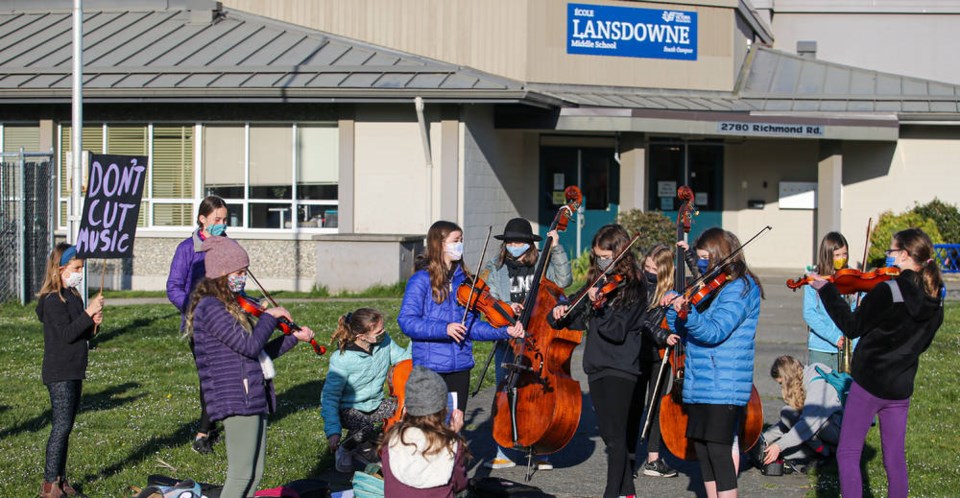In most African cultures, music is for dancing and singing, not listening to quietly while seated in a chair.
Sociologists call this evidence of a participatory culture, where individuals don’t just act as consumers but also as contributors or producers.
In many European cultures, as well, music is for playing and sharing. Walking down a street in France, I stop to admire a duet — a guitar player and an accordionist. “Do you play?” I am asked in faltering English. “Sure,” I reply, “but…” and the guitar is handed over. “Alors rejoinez nous” — please join us — and then I am playing three- or four-chord songs I have never heard before but that have patterns that make sense to a musician’s ear, with new friends I have never met before.
Late at night, in a street in a small beachside village in Mexico, a group of men, possibly assisted by a touch of “contrabando” — the local illegal tequila — are singing ranchera songs in two or three harmony parts.
I watch the guitar player. He’s not doing anything complicated — he’s not Paco de Lucia or Segovia. He’s just making simple unadorned music — real music.
Again, “Ti juegas?” “Un poco,” I shrug, and the guitar is handed over.
Again, I don’t know the songs, just that they have harmonic patterns that are, in western cultures at least, universal: one-four-five (C-F-G7) chord progressions as musicians call them, with maybe a relative minor chord thrown in.
Would this happen on a street in Victoria? Maybe, but somehow we’ve been conditioned to enjoy music as listeners, not as participants.
There are exceptions, of course, such as the Boîtes à Chansons of Montreal and Quebec City, small venues for Quebecois folk music. Music has always been an important part of Acadian culture.
In the western provinces, however, school music has become something of an “attachment” to the core curriculum, one that’s not for everybody.
But that may be changing. New research is shedding light on how the brain interacts with music.
“Music is very subjective,” says Dr. Daniel Levitin, a professor of neuroscience and music at McGill University in Montreal and author of the bestselling book This is Your Brain on Music, adding that there are more researchers studying the neurological effects of music now than ever before.
A study published in Scientific Reports recently by researchers at University College London looked at how quickly the brain can recall a “familiar” song — much like the “name that tune” games radio hosts play on air.
When country star Glen Campbell was diagnosed with the onset of dementia, he continued to perform stadium shows both musically and lyric perfect, even though he could not remember the names of his children in his band.
Sound complicated? Welcome to the world of studying music and the brain.
Which brings us to the question of music and young developing minds.
Playing music, researchers tell us, is one of the few activities that involve using the whole brain. It’s like a full-body workout for the brain and has surprising benefits for learning language, improving memory and focusing attention, according to Dr. Anita Collins in her Ted Talk “How Playing an Instrument Benefits Your Brain.”
Collins focused her work on language development and executive function. The latter is a set of mental skills that help you get things done and is understood to be significant to early educational success.
Many other studies over the years have shown that playing music engages the brain in a unique way that virtually no other activity does.
Apparently, playing music requires the use of nearly every area of the brain at the same time, and each of these areas is doing its part of the work instantaneously.
In the past few decades, neuroscientists have made advances in understanding how our brains work with instruments such as MRIs and PET scanners.
Tasks such as reading or doing math problems seemingly each have corresponding areas of the brain where activity can be observed. But when researchers have participants listen to music, they see “fireworks” on the screen.
Playing music, any style of music — from Bach’s endless modulations to jazz innovator John Coltrane’s almost algebraic harmonic substitutions for standard tunes — move the musician’s brain into areas of thought nothing else can.
“As a little girl,” Albert Einstein’s second wife, Elsa, once remarked, “I fell in love with Albert because he played Mozart so beautifully on the violin. He also plays the piano. Music helps him when he is thinking about his theories. He goes to his study, comes back, strikes a few chords on the piano, jots something down, returns to his study.”
It may well be time for music education to move back into the curricular mainstream.
Geoff Johnson is a former superintendent of schools.



